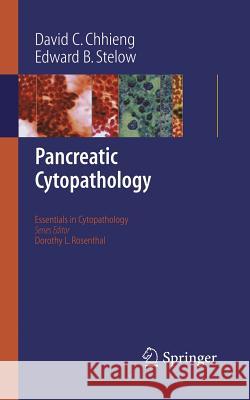Pancreatic Cytopathology » książka
Pancreatic Cytopathology
ISBN-13: 9780387689463 / Angielski / Miękka / 2007 / 197 str.
Diagnosis by cytologic means is what the mathematicians would describe as elegant; the methods are often simple but richly nuanced, while the results can be profound though succinctly stated. Tiny samples atraumatically obtained are at the heart of both the elegance and the dif? culties of this subspecialty. Following initial successes of traditional exfoliative cytology, further applications were long constrained by the fact that few body surfaces present themselves for direct collection of exfo- ated cells. Thus, it was inevitable that advances in nonoperative evaluations for speci? c body sites would be accompanied by expansions in cytologic diagnosis. Hence the proliferation of sampling methods with techniques the same as their names, including brushing, washing, lavage, and aspiration. Examples come readily to mind. One of the most dramatic bursts in cytodiagnosis happened in the 1980s, when deep-lung sampling by bronchoalveolar lavage (BAL) arrived at about the same time as the AIDS pandemic. Frequent and often repeated diagnosis of CMV and pneumocystis quickly led to numerous such samples being submitted to many laboratories. These now common infectious agents and this new technique were highly suited to rapid evaluation of AIDS patients. The rapid rise of ? ne needle aspiration occurred at about the same time, at least on this side of the Atlantic. Although not really new, the explosion in its use had awaited both cli- cal acceptance and adequate training for a critical mass of pathologists. This history has been well recorded by others.











